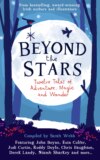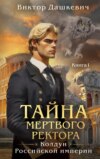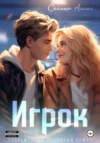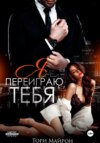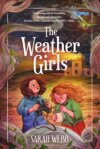Buch lesen: «Beyond The Stars»
Copyright
HarperCollins Children’s Books is a division of HarperCollinsPublishers Ltd,
77-85 Fulham Palace Road, Hammersmith, London W6 8JB
Fighting Words Ltd. Company Registered Charity CHY 18262
and
Beyond the Stars: Twelve Tales of Adventure, Magic and Wonder
‘The Star Dogs’ text © Roddy Doyle 2014, illustrations © Steve Simpson 2014
‘The Hero of Drumree’ text © Derek Landy 2014, illustrations © Alan Clarke 2014
‘The Brockets Get a Dog’ text © John Boyne 2014, illustrations © Paul Howard 2014
‘How to Help Your Grandda’ text © Judi Curtin 2014, illustrations © Chris Judge 2014
‘The Lookout’ text © Eoin Colfer 2014, illustrations © Marie-Louise Fitzpatrick 2014
‘The Snow Globe’ text © Marita Conlon-McKenna 2014, illustrations © P. J. Lynch 2014
‘The King of the Birds’ text © Michael Scott 2014, illustrations © Chris Haughton 2014
‘The Battle of the Ice Queen’ text © Gordon Snell 2014, illustrations © Michael Emberley 2014
‘The Last Cat’ text © Celine Kiernan 2014, illustrations © Tatyana Feeney 2014
‘Across the Cold Ground’ text and illustrations © Oisín McGann 2014
‘Ice Fairies’ text © Siobhán Parkinson 2014, illustrations © Olwyn Whelan 2014
‘Discovering Bravery’ text © Emma Brade 2014, illustrations © Niamh Sharkey 2014
Cover Illustration © Chris Haughton
Cover Design © HarperCollinsPublishers Ltd 2014
John Boyne, Emma Brade, Eoin Colfer, Judi Curtin, Roddy Doyle, Celine Kiernan, Derek Landy, Oisín McGann, Marita Conlon-McKenna, Siobhán Parkinson, Michael Scott and Gordon Snell assert the moral right to be identified as the authors of this work.
Alan Clarke, Michael Emberley, Tatyana Feeney, Marie-Louise Fitzpatrick, Chris Haughton, Paul Howard, Chris Judge, P. J. Lynch, Oisín McGann, Niamh Sharkey, Steve Simpson and Olwyn Whelan assert the moral right to be identified as the illustrators of this work.
All profits made from the sale of this Ebook go to Fighting Words, a Registered Charity CHY18262.
A catalogue record for this book is available from the British Library.
All rights reserved under International and Pan-American Copyright Conventions. By payment of the required fees, you have been granted the non-exclusive, non-transferable right to access and read the text of this e-book on screen. No part of this text may be reproduced, transmitted, down-loaded, decompiled, reverse engineered, or stored in or introduced into any information storage and retrieval system, in any form or by any means, whether electronic or mechanical, now known or hereinafter invented, without the express written permission of HarperCollins.
Source ISBN: 9780007578467
Ebook Edition © 2014 ISBN: 9780007578474
Version: 2014-09-16
This book is dedicated to teacher Liz Morris and the children of Griffeen Valley Educate Together School, the very first visitors at Fighting Words; and to all the teachers and children who have stepped through its magic doors.
SW
CONTENTS
Cover
Title Page
Copyright
Dedication
Introduction
The Star Dogs

The Hero of Drumree
The Brockets Get a Dog
How to Help Your Grandda

A Winter’s Tale: The Lookout

The Snow Globe

The King of the Birds

The Battle of the Ice Queen

The Last Cat

Across the Cold Ground

Ice Fairies

Discovering Bravery
The Write to Right
About the Publisher
Beyond the Stars is unique.
Why did twenty-three stellar children’s writers and illustrators band together to show their love and support for Fighting Words, a creative writing centre in the heart of Dublin city?
That’s easy. Because, like this book, Fighting Words is unique. As Roddy Doyle, the centre’s co-founder, says, “It’s a big bright room. In an area that needs a big bright room. In a climate that needs a big bright room.”
Fighting Words is a remarkable place that provides free tutoring in creative writing to all ages, but most especially to children and teenagers. It gives young writers a voice and helps them to reach their creative potential. And above all, it’s fun.
In January 2009 I volunteered at Fighting Words’ very first Primary School Workshop. The room was so full of creativity, joy and optimism I thought my heart would burst. With the help of a storyteller, an illustrator and a team of volunteers, each of the children involved wrote their own book. On the back of each book (every young writer was given their own copy to take home – complete with wonderful full-colour illustrations) was a photograph of the child’s smiling face and a blank box for them to add their very own writer’s biography. Leaving the centre, their faces shone with happiness.
Since that first workshop, I have volunteered at Fighting Words whenever I can. I have always left that big bright room inspired, uplifted and with a joyful heart. This book is my thank you to the centre, for creating a haven of the imagination – my love letter to Fighting Words if you like. I hope they will allow me to continue to be a small part of the magic for many years to come. A huge thank you must also go to Roddy Doyle and Sean Love for their help with this book.
Beyond the Stars would not exist without the superstar writers and illustrators behind this collection – all of whom said yes to contributing without hesitation. Yes, Chris Haughton, it was a little like “herding cats” at times, but very cool and lovely cats! Thanks to the team: Roddy Doyle and Steve Simpson; Derek Landy and Alan Clarke; John Boyne and Paul Howard; Judi Curtin and Chris Judge; Eoin Colfer and Marie-Louise Fitzpatrick; Marita Conlon-McKenna and P. J. Lynch; Michael Scott and Chris Haughton; Gordon Snell and Michael Emberley; Celine Kiernan and Tatyana Feeney; Oisín McGann; Siobhán Parkinson and Olwyn Whelan; and finally, Niamh Sharkey, who illustrated our competition-winner Emma Brade’s story. Mammoth thanks also to Ruth Alltimes, Mary Byrne and their supernova team at HarperCollins Children’s Books for their hard work and support of what is a highly unusual project. And to my wonderful agent, Philippa Milnes-Smith, for her hand-holding and enthusiasm for the book.
As the Irish writer Oscar Wilde once said: “We are all in the gutter, but some of us are looking at the stars.” With your wonderful work for this collection, you have all reached for the stars, and ‘Beyond’. Together, we have created a glowing universe of space dogs and ice queens, invisible cats and warriors brave.
Now it is up to you, dear reader, to continue the journey. Read the magical stories within these pages and let your imagination fly.
Sarah Webb
To find out more about Fighting Words and its work turn to the back of this book.
Roddy Doyle has written ten novels, including Paddy Clarke Ha Ha Ha, which won the Booker prize in 1993, and The Commitments, now a popular West End show. He is the co-founder of Fighting Words. He has written several books for children, the latest of which is called Brilliant. He lives in Dublin – which is also brilliant.
Steve Simpson’s innovative, award-winning approach to graphic design, typography and illustration is built on fresh thinking, traditional skills and a healthy dose of fun. Mise agus an Dragún, written by Patricia Forde and illustrated by Steve, was shortlisted for the CBI Book of the Year Awards in 2013.

MOSCOW – January, 1951:
It was cold. So cold. But the dog was used to it. The cold was a part of her. But the hunger – she could never get used to that. Although she had always been hungry.
She stood on the street, off the footpath, in the snow. She knew the humans would find it hard to see her – until it was too late. She was white, and very small. She could make herself seem even smaller, and the snow was fresh, new, still falling. The city’s dirt hadn’t spoilt it yet.

The dog watched the humans. They weren’t moving. They stood in a line outside the bakery, waiting for their turn to buy the bread that the dog could smell from where she stood. Like her, the humans were cold. Like her, they were used to it. Unlike her, they were tired, numb, half asleep.
She heard the car before she saw it. It had turned the corner but, still, she couldn’t see it until it came out of the falling snow. A black car. (All cars were black.) She made her move. She ran the short distance to the centre of the street, straight into the path of the car. There was a risk. She was the colour of the snow and the driver might not see her. But she was hungry. And she was loud.
She barked.
The driver heard the dog, then saw her. He braked, and the car stopped briefly, then started a sideways skid across the ice.
“Stupid dog!”
The car continued on its slow, unstoppable journey over the ice.
The women queuing outside the bakery turned in time to see the car. They watched as it hit another, parked car. There was no sign of the dog. No one had seen a dog. Some of the women went to help the driver, and the baker, a thin man with long arms, ran out of the shop.
“What happened?”
The dog made her move.
While all human eyes were fixed on the crashed car, she dashed back across the street. Her paws were tough, and moving over the ice was easy. She jumped and, with her teeth, she pulled a parcel from the top of a straw basket. It was a gamble – but she knew immediately that she had chosen well. Her nose told her, and her tongue against the paper bag told her: she had grabbed meat.
She’d been noticed.
“Look!”
“The cheek!”
She had to escape. Her size was useful again. She dashed through legs. Hands tried to grab her, and feet tried to kick. Women slid, and the baker ran back inside to get his gun. The dog was tempted to stop, to devour the meat right there – she was so hungry. But she kept going. She was almost clear.

She didn’t see the net, or the man holding the net. She felt it land on her back, and she felt it tangling her feet, her paws. She didn’t know what it was. But she did know she’d been caught.
She ate the meat as quickly as she could. She was still eating, snarling, when she was lifted in the net and carried to the cage in the back of the truck.
She had heard dogs howl before – of course she had. All her life she’d heard angry, frightened dogs. But never so many, and never under a low roof.
It was dark in the dog pound. There were no windows. But she could still see the other cages and the dogs. They were fighting against the chains that held them to the walls. Pulling, trying to bite through the iron links. And howling.
She howled too, and pulled. She had been here, locked up, for five days and nights. But she didn’t give up. She wouldn’t. She wanted to feel the ice under her paws again. She wanted to feel the freezing air, and the snow. She wanted to get back to the streets of the city, her wilderness, her proper life.
She saw the door open before she heard it. The door became a crack of light that got slowly wider, followed by the protests of the rusting hinges.
Followed by the humans.
There were two of them. Two males. One of them she’d seen before, the one who came every day and hit the cage bars with his wooden club before he filled their water bowls. The dog had bitten him the first day, and she’d felt the club on her back.
The other human she hadn’t seen before.
She watched them walk slowly between the cages, examining each dog. They walked straight past the bigger dogs and the dark-furred dogs, and stopped in front of a cage that contained a small white-furred dog, like her.
The dog, a female, sat quietly in her cage, the only dog not howling.
“This one,” said the stranger.
The man with the club unlocked the cage and took out the white dog. She didn’t attack or pull at her chain.
They moved again, the humans. And stopped again, at another white-furred dog.
“And this one,” said the stranger.
Again, the man with the club removed the chosen dog from her cage.
Here was her chance, she thought. Here was escape. She fought the urge to howl, and to throw herself at the bars of the cage.
She sat – she made herself sit still.
The two men walked past all of the large dogs. Nearer – they came nearer. Sit still, she told herself. Be still, sit still.
They stood in front of the dog.
“And this one.”
“This one bites,” said the man with the wooden club.
The dog stood – and wagged her tail.
“Surely not,” said the stranger. “You must be mistaken, comrade.”
“As you wish, comrade,” said the man with the club.
“She is perfect,” said the stranger. “We want the quiet ones.”
The cold air felt like food. She stood on the back of the truck as it raced out of the city. The buildings became smaller, and fewer. There were fewer of the billboards and banners that the humans seemed to love – ‘Glory to the Workers’, ‘Together We Go Forward’. Then there were no buildings or banners. They had left the city.
The dog looked back the way the truck had come. The road was long and straight, and she could see the city at its end. Far away, but still there. It stood out, with its own dark cloud hanging above it. She would find her way back easily, when the time came.
For now, she had the air. It went to her lungs, but also to her stomach. It filled her up and made her feel alive, and alert. There were six other dogs in the cage, but she was the only one standing. The others had tried it but had given up, and surrendered to the shaking of the truck. They lay on the truck bed. They were all white-furred, all very small.
The dog stood over them. She would be the leader.
One of the other dogs looked up at her.
“You look at something?” she said.
The other dog looked away. Good. She didn’t want to fight – not now. But she would if she had to. She was tough. Like the other dogs. They had all survived on the city’s streets. She would have to be the toughest.
The truck swerved suddenly to the left. The dog almost toppled; she nearly fell on to the others. One of them snarled and snapped. The truck moved over a rough, pot-holed track. Soon she felt the truck slow down, then stop. She saw a huge grey building, as big as a city building, but alone. It was partly hidden by trees.
The driver climbed out and came round to the back of the truck, and the cage. This was the same male human who had selected the dogs in the pound. She had heard his name. Pavel.
She wagged her tail and she barked.
Pavel opened the cage.
“Come, dogs,” he said. “Come, furry comrades. Welcome to the Institute.”
He had gathered their seven leashes into one hand, and now he pulled gently. He coaxed them to the edge of the truck bed until they had to jump.
The standing dog went first.
“Good dog.”
The others followed. Pavel patted their backs as they gathered around his feet. She stopped herself; she didn’t bite his hand. One of the other dogs, however, snapped at the human’s wrist. He cried out, shocked.
“Stupid dog!”
He examined his wrist.
“You will not be staying.”
He picked up the dog and pushed her, almost threw her, back into the cage. The steel of the lock screeched as he pushed it into place. It was a sound like pain.
Pavel examined his wrist again.
“No blood,” he said. “Come, dogs.”
He led them across the snow to a large metal door. The dog noticed a sign on the wall, a picture of something flying through a cloud, and she wondered why they’d been brought there.
Pavel pulled open the door, and they were now in a dark, damp corridor. The dogs fought against the leashes. They fought each other. She snapped at a dog who tried to get ahead of her. The other dog yelped and fell back. She was at the front. No other dog tried to pass.
They came to the end of the corridor and Pavel pushed open another metal door. They were now in a much brighter room. There were big windows along the high walls, and sunlight broke through the snow that lay on top of the windows in the ceiling.
And cages. There were cages here too, in the centre of the room, piled neatly on top of each other. There were rows of them, like one of the human buildings in the city. The dog could see that the cages were clean and shining. And empty.
More humans, all of them wearing white coats, came towards the dogs and surrounded them. They got down on their knees and patted the dogs. They laughed and looked excited.
A female white coat – Pavel called her Svetlana – stared into the dog’s eyes.
“This one I call Tsygan,” she said. “Gypsy.”
The dog had never had a name before. She had never belonged to a human, or been inside a human home.
The white coat, Svetlana, held Tsygan’s head. Tsygan didn’t bite her.
“You have had a tough life, I think,” said Svetlana.
Another human, an older one, arrived and, immediately, the others stood and stopped looking excited. Tsygan could tell this new human was the leader.
He spoke to Pavel.
“All female, yes?”
“Female?” said Pavel. “I was not told this, Comrade Gazenko.”
“Does no one ever listen?” said Gazenko.
“I am sorry, comrade doctor,” said Pavel.
“But why must they be female?” Svetlana asked.
“You will see tomorrow,” said Gazenko. “They are all light-furred, yes?”
Der kostenlose Auszug ist beendet.



